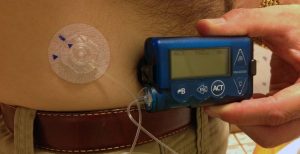With diabetes clinics increasingly dominated by growing numbers of patients with type 2 diabetes, a Queensland endocrinologist believes his type 1 patients deserve a dedicated clinic where their unique needs can be catered for.
Ipswich-based endocrinologist Dr Tom Dover has started up a one-stop-shop program for type 1 diabetes patients to give them the attention and focus on specific needs that differ from those of patients with type 2 diabetes.
With the emergence of new technologies like insulin pumps and staff becoming busier with type 2 patients, the need to separate treatment for type 1 diabetes patients became obvious, he tells the limbic.
“Ipswich is one of the most obese cities in Australia, with a huge population with diabetes and our clinics were overloaded with type 2 patients,” he says.
“I just wanted to give the type 1 patients the chance to get adequate care, and not have to travel to Brisbane to get their tertiary care.”
Run by West Moreton Hospital and Health Service, the new type 1 diabetes service currently has about 100 patients on its books, half of whom are aged under 21, meaning they can access to subsidies for new technologies to help them manage their disease.
“Previously it was hard to educate people on how to use new technologies in the mixed environment,” explains Dr Dover. “So to be able to offer them continuous glucose monitors and things that are now subsidised, I thought was a big step forward.
 “Prior to me coming out here we didn’t do any pump starts, and referred them privately or to Brisbane but technology is changing so quickly that offering insulin pumps is one of the things I wanted to do.
“Prior to me coming out here we didn’t do any pump starts, and referred them privately or to Brisbane but technology is changing so quickly that offering insulin pumps is one of the things I wanted to do.
“To educate someone to use one is a huge process from teaching them to use the DAFNE (dose adjustment for normal eating) program and showing them the pumps available, showing them how to use them. The pump start day is very labour intensive day as well.”
The clinic runs fortnightly, offers half hour morning appointments with an endocrinologist, with nursing and allied health staff available all day.
Many patients also have additional complex social and psychological needs, some also in financial stress, and the failure to attend appointments tends to be higher that in Type 2 patients, Dr Dover notes.
“Quite often they have a lot of comorbid mental health issues that you just can’t manage in a big overbooked clinic, so to get everyone under the one roof can be really helpful,” he says.
“So if you can nab them there and get them in to see the dietitian or the psychologist while there is captive audience we are hoping that will show better outcomes.”
The clinic carries out psychological screening for diabetes-related distress and eating disorders to assess underlying mental health.
It’s hoped the clinic will lead to higher rates of patient attendance and satisfaction.
“Ultimately we want to reduce HbA1c and reduce long term complications both from hyperglycemia and hypoglycemia as well, and I guess we want to provide that one-stop-shop
“We also want try get on top of mental health problems like anxiety and depression which can cause disease to get out of control.”
Dr Dover also hopes the clinic can be a prototype for a national system, with results from its evaluation to be presented at the Australian Diabetes Society meeting.
“This is essentially the gold standard for managing people with type 1 and I think they are a neglected group, compared to the burden of type 2, so if it could be rolled out that would be great.”